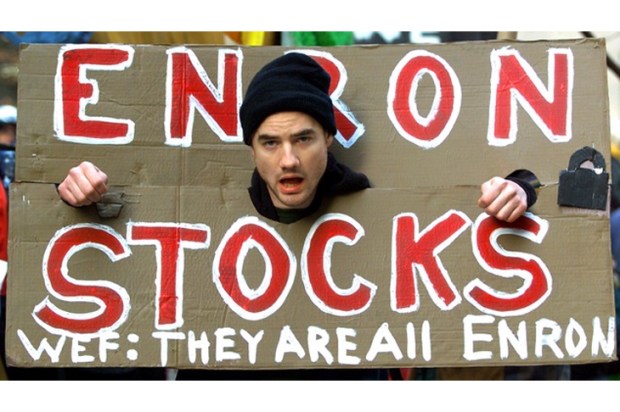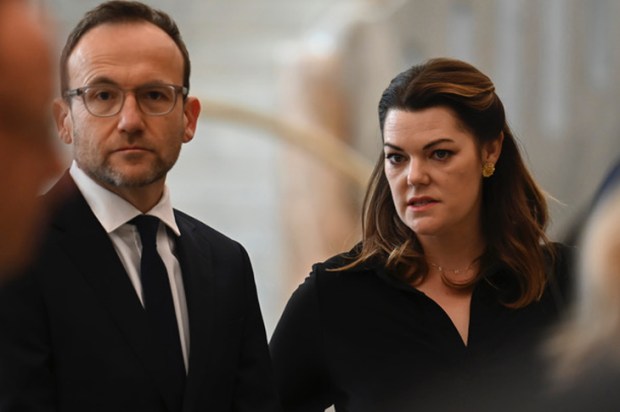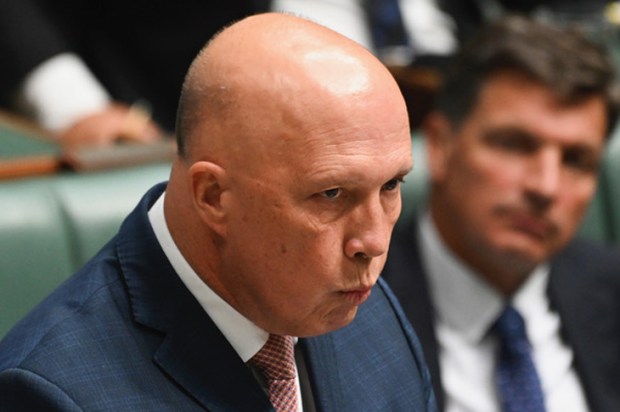How did 2024 go for the federal Treasurer, Jim Chalmers – Jimbo to Speccie readers? If you believe what he says, it was outstanding, splendiferous, in fact. Unemployment stayed low, heaps of jobs were created, inflation was halved since Labor came to government, real wages began to grow… yada yada yada. Talk about a metaphorical massive pat on the back.
Boy, can that boy from Logan talk? He reminds me of that other word-salad-smith we came to know and love in 2024 – Kamala Harris. OK, love is a bit strong, but know is on the money.
Luckily, she is now able to enjoy an unburdened break, freed from the weight of becoming the leader of the free world. Gosh, that should be positively joyful for her. Perhaps she could celebrate with the senile octogenarian who, in theory, remains in charge until Inauguration Day on 20 January?
Getting back to Jimbo, the Australian carried a news item just before Christmas on Jimbo’s communication skills, coming close to taking the piss. Chalmers was described as a ‘soundbite persona’.
The analysis showed that Jimbo regularly creates catchy new phrases – perhaps the young’uns in his office give assistance or maybe ChatGPT lends a hand – which he then repeats for some time. Over time, the phrases are slightly modified, but repetition is his mainstay.
He bangs on about ‘getting the budget in better nick’ – sure, Jimbo, what about the ten years of deficits ahead? – and people being ‘under the pump’. He is very happy to rattle off the list of what he sees as Labor achievements – cheaper childcare, energy bill relief, tax cuts for everyone, et cetera, et cetera. He has a prepared answer to every question at the tip of his tongue. It’s just that he repeats that answer many, many times.
He naively claims that had it not been for government spending over the past 12 to 18 months, Australia would have been in recession. What he doesn’t seem to understand is that this massive jump in government spending has been crowding out private sector activity and that there is nothing particularly sacrosanct about recording a recession or staying out of a recession.
What matters is per capita growth and, on that score, Australia has been performing woefully. We have recorded seven consecutive quarters of negative growth in per capita GDP, which puts us among the very worst performers in the OECD. Indeed, the left-leaning magazine, the Economist, recently couldn’t place Australia in the top 20 performing economies in 2024. The sympathetic editors would have given it a shot to put us on the list, but sadly the figures don’t lie.
Needless to say, Jimbo doesn’t have a catchphrase for the negative growth in living standards or the fact that productivity growth has been so sluggish that it is at the same level recorded in 2016. From time to time, he speaks vaguely about the productivity challenge and talks rather insincerely about the private sector being the engine of future growth. But there is no follow-up to these comments.
He often crows about the number of new jobs that have been created but fails to mention that the vast majority of these jobs are in the non-market sector and are funded by taxpayers, directly or indirectly. Indeed, according to the latest figures, nearly 90 per cent of the new jobs recorded for the month were these non-market sector ones. It’s hardly surprising that we have a productivity problem.
I’ve said it before, but let me repeat this point: good treasurers have their fingers in every policy pie, be it energy, housing, immigration, industrial relations. This is because outcomes in the economy are highly related to these policy settings as well as the stance and content of fiscal policy. Jimbo seems strangely aloof from all other policy areas apart from his own.
Indeed, you hear him supporting B1, Climate Change and Energy Minister, Chris Bowen, about the renewable energy superpower mirage. Jimbo even concocted the most ludicrous estimate of the cost of nuclear power in Australia – $4 trillion. Just think about it, even if we had 10 nuclear plants at $20 billion a throw and add another $20 billion to upgrade the transmission and distribution systems, we are nowhere near $4 trillion. Let’s face it, he just made it up because it sounds really, really big and really, really scary.
Had he been also focusing on immigration, he would have tried to constrain the rate of growth of population because it’s causing all sorts of headaches, including in the housing market and putting pressure on infrastructure. The fact is that high population growth leads to capital shallowing in the short term – capital formation takes a while to catch up – and, in itself, is leading to sluggish productivity growth.
He doesn’t seem to show the least bit of embarrassment that his department is utterly incapable of forecasting the rate of population growth, even though there is a completely separate division in Treasury to do so.
Last financial year, there were going to be 375,000 new migrants in net terms, adding to the around 100,000 in natural population increase. The net overseas migration was upped to 395,000, but when the numbers came in it was over 450,000. Bear in mind this is nearly double the average for this century.
But Chalmers has very little to say about population growth because he is too busy congratulating himself about his budget management and dealing with ‘unavoidable and automatic spending’ – another favourite aphorism. When he is asked about the deficits that are now being forecast for this financial year and the next nine years after that, his response is to ask the Opposition about the cuts that they would make. ‘Slash-and-burn austerity’ is his current term for any attempt to restrain the growth of government spending.
Jimbo was chuffed at the end of the year that his much-stalled restructure of the Reserve Bank passed the Senate in that exercise of legislative canyoning that the Greens facilitated. His contribution to the Bill’s passing was zero, but what the heck.
He wasted no time in announcing the two new boards, the Monetary Policy Board and the Corporate Board. There was always a chance that he would install a number of Labor hacks on the MPB who would be keen to see early cuts to the cash rate. As it turned out, he was surprisingly restrained and appointed two women, one who was on the review panel – a bit of a governance issue there, but again what the heck – and a former CEO of one of the smaller commercial banks.
The news came and went, which was probably just as well for Jimbo. He couldn’t really afford another episode of widespread outrage like his decision to alter the mandate of the Future Fund to favour the government’s pet projects – housing, infrastructure and renewable energy.
To sum up: Jimbo, good on the words, not so good on the substance. If banal platitudes are your thing, he’s a deity. But an effective treasurer concentrates on making the economy more efficient and wisely managing the budget. Take your pick.
Got something to add? Join the discussion and comment below.
You might disagree with half of it, but you’ll enjoy reading all of it. Try your first month for free, then just $2 a week for the remainder of your first year.













